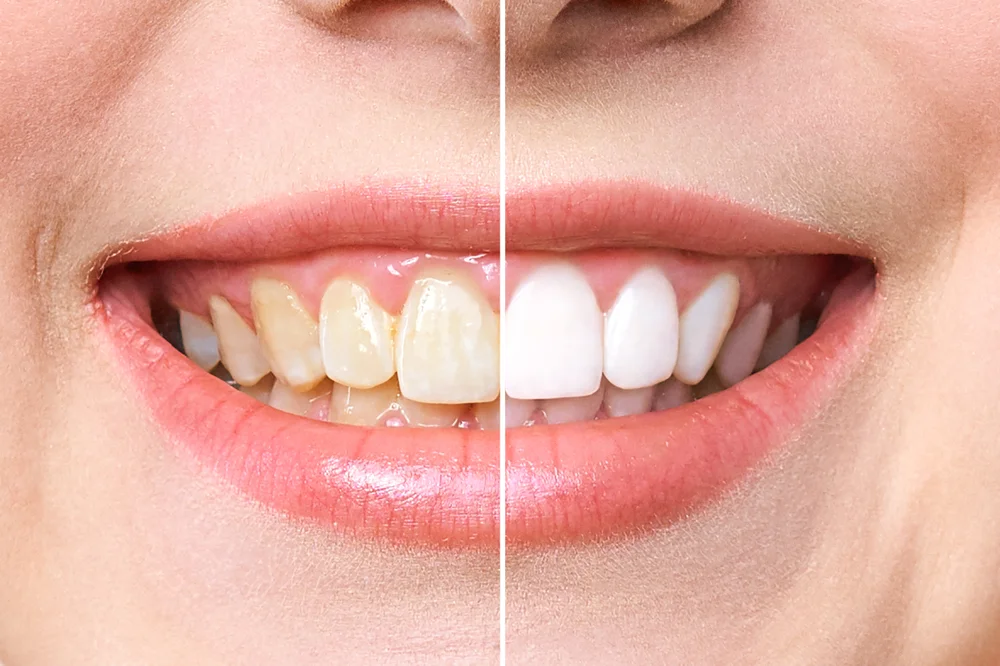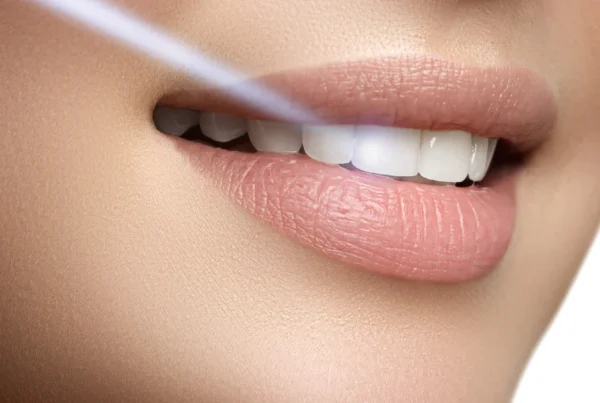Baking soda, known for its gentle cleansing properties, is a common, natural product for oral hygiene. Unlike many home remedies, scientific evidence supports baking soda’s effectiveness in teeth whitening. Based on Fountain of Youth Dental’s practices, this article aims to clarify misconceptions, present its benefits, and advise on seeking professional treatment.
Baking soda’s success comes from its ability to remove superficial dental stains. While effective, the product must be complemented with regular dental care. It is crucial to understand when professional intervention is needed for more complex dental issues.
Key Challenge or Risk Area 1
While baking soda is renowned for its low abrasiveness, misunderstandings about it damaging enamel are common. Education on proper usage is crucial for safe and beneficial application.
- Enamel Safety: Baking soda’s abrasivity is much lower compared to other abrasive whitening agents.
- Usage Guidelines: Consumers should be instructed on the correct frequency and method of application.
- Risk Mitigation: Proper education can prevent misuse and potential dental health risks.
With the correct knowledge and application methods, patients can enjoy the benefits of baking soda without compromising their enamel health.
Key Challenge or Risk Area 2
Tempering expectations is essential, as baking soda removes superficial stains but doesn’t change the intrinsic tooth color. Understanding this limitation helps avoid disappointment.
- Surface Stains: Baking soda is effective in cleaning extrinsic dental stains from the surface.
- Professional Treatments: For intrinsic discoloration, more advanced dental procedures are needed.
- Setting Realistic Goals: Educating patients on what to expect from baking soda is key to satisfaction.
Setting proper expectations allows individuals to better appreciate baking soda as part of a maintenance routine, rather than a dramatic whitening solution.
Key Challenge or Risk Area 3
Baking soda is not a cure-all for dental stains. Natural methods can be harmful if misused or mixed with aggressive ingredients, emphasizing the need for education on safe practices.
- Natural Remedies Limitation: Baking soda addresses only certain types of dental stains.
- Risks of Overuse: Incorrect use, especially with acidic substances, can damage enamel.
- Education Importance: Raising awareness on the proper and safe use of baking soda is imperative.
With a focus on education and safe application, patients can avoid the dangers of misusing natural remedies and still enjoy the benefits of baking soda.
Actionable Response or Strategic Solution
Effective patient guidance on the use of baking soda is necessary, and Fountain of Youth Dental can lead in providing educational material and integrating it into comprehensive dental care plans.
Clear instruction on safe use, integration into personalized care plans, and proactive patient education ensure that baking soda becomes a helpful, not harmful, part of oral hygiene.
Decision Criteria or Escalation Triggers
Certain situations call for a dental professional’s input, such as unresolved stains, sensitivity, or intrinsic discoloration, to ensure patient safety and achieve the best results.
If a patient experiences lingering stains or increased tooth sensitivity, or if they suspect deeper intrinsic discoloration, they should consult their dentist before continuing with baking soda-based care.
Support Resources or Professional Guidance
Custom whitening treatments and in-office options can supplement the natural whitening effects of baking soda, enhancing oral health and maintaining whitening success.
From customized whitening trays to procedures like Zoom Whitening, Fountain of Youth Dental offers a suite of services to amplify and maintain results. Regular visits also provide the guidance needed to stay on track.

Preventive Measures or Best Practices
Using baking soda for teeth whitening should be limited to a few times a week, complemented by fluoride toothpaste, with regular checkups to manage dental health outcomes.
- Frequency Regulation: Too frequent use of baking soda can be harmful; moderation is recommended.
- Fluoride Incorporation: Regular fluoride toothpaste is recommended to make up for baking soda’s lack of fluoride.
- Regular Checkups: Routine dental visits are crucial to monitor and advise on oral hygiene practices.
A mindful approach that combines safe use with regular professional care keeps teeth healthy while maximizing whitening benefits.
Baking Soda and Bright Smiles: A Balanced Approach
Baking soda can be a safe and effective tool for gentle teeth whitening, but it works best when guided by professional care. At Fountain of Youth Dental, Dr. Chris Cappetta helps you combine trusted natural remedies with personalized dental strategies that protect your enamel and enhance your smile.
If you’re ready to explore whitening that’s both effective and mindful of your health, schedule your consultation today and let us help you build a routine that’s as smart as it is bright.
Frequently Asked Questions
Can baking soda really whiten my teeth, and is it safe?
Absolutely! Baking soda is proven to lift surface stains from teeth, making it a natural and effective option for a brighter smile when used properly. Just be sure to follow guidelines on frequency and pairing it with regular dental care to protect your enamel.
How often should I use baking soda for whitening?
For the best results without harming your enamel, use baking soda to brush your teeth two to three times per week. It’s important not to overdo it and always complement your routine with fluoride toothpaste to maintain oral health.
Will baking soda whiten deeply stained or yellow teeth?
Baking soda is excellent for removing surface stains but it doesn’t change the inner color of your teeth. For deeper or intrinsic discoloration, such as yellowing due to aging, consult with your dentist about professional whitening options that can provide more significant results.
Ready for a dentist who cares as much as you do about your smile? Contact Dr. Cappetta today to schedule a no-pressure consultation. You can also call us at (210) 614-5481.
With Fountain of Youth Dental, you can stop settling and finally get the healthy, stunning smile you deserve!
Schedule Your Free Consultation Today!
Fountain of Youth Dental
5282 Medical Dr. #520 San Antonio, TX 78229 (210) 614-5481 Driving Directions





